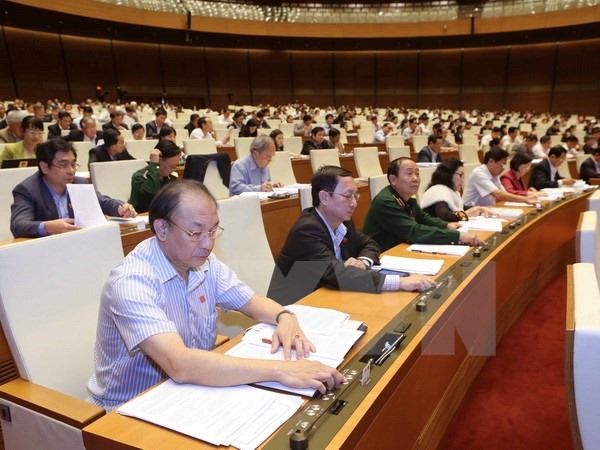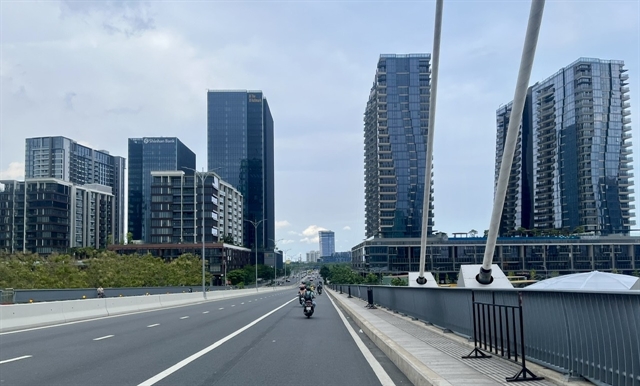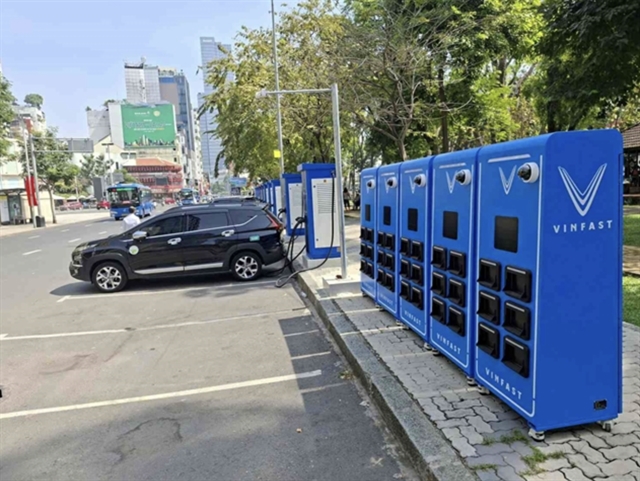

The revised Vietnam Maritime Code and the Law on Property Auction will officially take effect from Saturday (July 1), online newspaper Vietnamplus reported.
 |
| National Assembly deputies during a session. The Maritime Code and Law on Property Auction will take effect on July 1. — VNA/VNS Photo Phương Hoa |
HÀ NỘI – The revised Vietnam Maritime Code and the Law on Property Auction will officially take effect from Saturday (July 1), online newspaper Vietnamplus reported.
With 20 chapters and 341 articles, an increase of 2 chapters and 80 articles compared with the Maritime Code 2005, the new Maritime Code is said to contain sufficient regulations overseeing all maritime activities. Passed by the National Assembly in November 2015, the Code is expected to provide new momentum to the maritime sector in line with its international commitments.
The Code provides detailed regulations on policies for maritime development. Of note, priorities will be given to investment into constructing maritime infrastructure, seagoing fleets, and human resources for maritime activities to meet domestic and international demand; and to enhanced international co-operation and integration as well as the application of advanced science and technology.
Well aware of the importance of maritime safety, security and environmental protection, the Code added a new chapter specifying maritime safety and security; search and rescue; scope for the protection and settlement of incidents related to maritime projects; and environmental protection in activities such as the dismantling of oceangoing vessels.
Improved administrative procedures were also a focus of the revised Code with regulations on the registration for purchasing and selling oceangoing vessels being clearly defined as well as a time-limit for temporary detention of seagoing ships to ensure publicity and transparency, as well as minimise damages and difficulties for vessel owners.
Crew passports are also eliminated to minimise the amount of personal paperwork the crew have to carry when operating on international routes; so are administrative procedures previously required for the naming of oceangoing vessels, seaports, offshore oil and gas ports, wharves, piers, and water zones and areas. The naming of these facilities now should only abide by principles defined by the Code.
Additionally, the Code revises provisions on towage of seagoing vessels, navigation, dismantlement of seagoing vessels, salvaging of sunken property, and disposal of dangerous sunken property. The provisions are clear and detailed in line with international treaties and practices.
Improved property auction
Under the Law on Property Auction, auctioned property includes property to be sold through auction as required by law and at the will of organisations and individuals.
Regarding auctioned property required by law, the Law details types of property on the basis of reviewing regulations stipulated in relevant laws in order to ensure publicity and transparency, which is used as a foundation for bodies, organisations and individuals to comply with orders and procedures stipulated in the Law when putting up the property at auction.
With 81 articles arranged in eight chapters, the Law specifies forbidden practices targeting auctioneers, auction organisations, property owners, auction participants, auction winners and relevant bodies and organisations in order to raise the legal and professional responsibility of auctioneers and improve the quality of auction activities.
The Law regulates that the wholly-State-owned organisation established by the Government to settle credit organisations’ bad debts (the Vietnam Asset Management Company – VAMC under the Enterprise Income Tax Law) are only allowed to put up at auction bad debts and VAMC’s bad debt guarantee property.
The Law on Property Auction was passed by the National Assembly last November. — VNS




